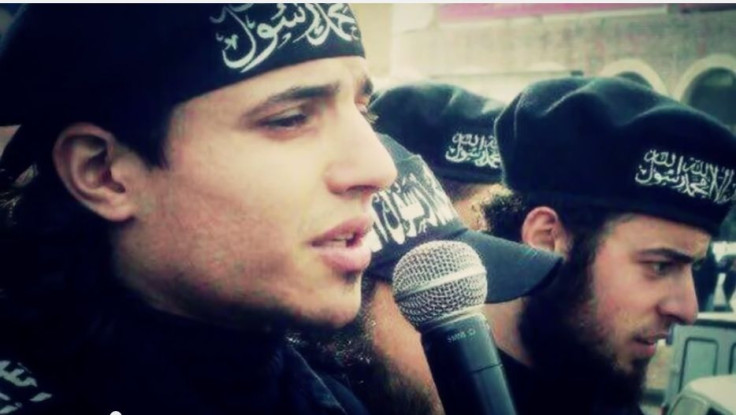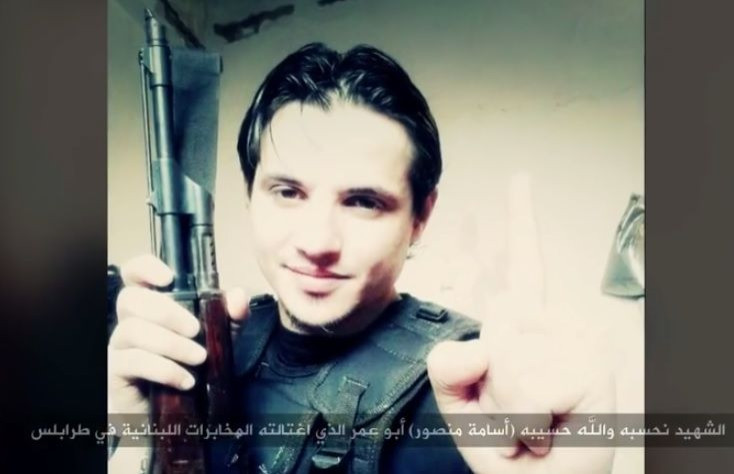How Al Qaeda's Syrian Affiliate Jabhat al Nusra Is Trying To Take Northern Lebanon

TRIPOLI, Lebanon -- On the day he died earlier this month, killed in a shootout with Lebanese security forces, the man who went by the name Abu Omar effectively controlled one-third of this port city on the Mediterranean coast. One of Lebanon’s most notorious jihadi fighters, he was the head of the local branch of Jabhat al Nusra, the al Qaeda affiliate that has been capturing wide swaths of territory in the war in neighboring Syria.
As Nusra has made incursions into Lebanon, it has repeatedly asserted that its sole focus is Syria, its goal to overthrow the regime of Bashar Assad. Given that Assad is supported by Hezbollah, the Shiite militia that operates inside Lebanon, Nusra has taken the fight there as a means of furthering its Syria aims.
But the al Qaeda affiliate's handling of Abu Omar’s death has opened a window onto a counternarrative: that Nusra may have designs on wider slices of Lebanon and ultimately seeks to create a Sunni emirate that would sprawl across Syria and reach the Mediterranean.
After the death of Abu Omar, whose real name was Osama Mansour, Nusra released a video celebrating him as a martyr, posthumously appointing him the emir -- or chief -- of what it called its province in Northern Lebanon.
As his father, Ahmed Mansour, stood here between rows of microwave ovens in his cramped warehouse, he cried as he showed International Business Times a video of his 27-year-old son’s funeral, held just days before. Hundreds of people had poured into the streets of Tripoli’s Bab el Tebbeneh neighborhood to parade his body around in a hero’s farewell from the people of the Sunni Muslim stronghold. When the footage cut to a photo montage set to his son’s voice singing, Mansour, through his tears, translated his son’s words:
“We have announced the holy land of Sham to be Islamic,” Abu Omar said in the video, referring to a region encompassing parts of Lebanon and Syria. He entreated al Nusra’s leader, Mohammed al Joulani, to widen the campaign, adding Lebanon to the fledgling emirate while eradicating Hezbollah.
“Mohammed al Joulani is defeating the party of the devil,” he said, using a common slur against Hezbollah. “Joulani, bring your army to Lebanon.”
Undeterred by Abu Omar’s killing, Nusra appears to be continuing the push, say sources within Lebanese security forces, in a development that threatens to pull Lebanon further into the orbit of the Syrian war, amplifying violent confrontation between Sunni and Shiites.
“If you want to clean your house, you start from the inside and then you clean the outside,” Abu Khaled said. “That was Abu Omar’s plan (…) connecting all the Sunni areas.”
Had Omar succeeded in that goal, the Nusra province in the country would have extended from Tripoli in northwest Lebanon up to the Qalamoun mountains on the border with Syria and would connect with Arsal, the heart of the zone controlled by Lebanon’s Sunni jihadist groups.
“They want an Islamic emirate,” said a high-ranking Lebanese army official who requested anonymity because he was not authorized to speak on the issue. According to al Nusra, he said, “the Syrians in Lebanon need to be gathered in an emirate to be free.”
Whenever the group has launched attacks in Lebanon in the past, it claimed it was simply targeting Hezbollah, in retaliation for the Lebanese Shiite organization’s involvement in the Syrian civil war, where it supports Assad. Lebanese security officials say this is not true, and that Abu Omar had been groomed for jihad in Lebanon, not Syria.
Nusra had started to notice Omar and his armed group in Bab el Tebbeneh almost two years ago, when he was just a local jihadist funding his own group that enforced strict Islamic law in the area. The al Qaeda affiliate reportedly reached out to him, offering money to buy weapons and access to a larger militant network in Lebanon and Syria, in exchange for allegiance.
"Nusra knew they had the same ideology (...) and then sent someone here and they personally appointed him” to be the Nusra chief in Tripoli, his father said.
The presence of al Nusra in Lebanon dates back to the early years of the Syrian civil war, which began in 2011. Militants began to infiltrate the Lebanese borders to secure supply routes and fight Hezbollah. At times, al Nusra and the Islamic State group, or ISIS, even worked together to coordinate attacks on Lebanese security forces and Hezbollah, but they mostly just kept out of each other’s way.
Then, al Nusra boosted its popularity and presence in the country by adopting tactics more conciliatory than the brutal rule of ISIS, which made them popular in Tripoli and Arsal as defenders of the local Sunnis. Al Nusra “is less cruel and doesn’t behead people. ISIS are not welcomed by the people. Nusra was smarter because it didn’t engage in brutal acts to make people resent them,” according to a high-ranking army official who asked to remain anonymous.

The ground is fertile for jihadists. “From the Qalamoun mountain region in Syria to the Bekaa Valley in Lebanon, underground smuggling networks and disaffected Sunni communities provide a logistical opportunity for rebel-sympathetic operations in Lebanon,” Jennifer Cafarella, a Syria analyst at the Institute for the Study of War, recently wrote.
The al Qaeda affiliate may have suffered a setback in Tripoli with the death of Abu Omar, but it still has a major presence in Arsal, its mountain stronghold. Al Nusra militants entrenched there are surrounded by the Lebanese army, which has no plans for a future operation to eradicate them. Last week several of ISIS’ top leaders in the area reportedly retreated back to Syria, leaving al Nusra in control of a major supply route into Syria.
Tripoli is now secure, according to an army official. Al Nusra still has many supporters in the city, but they’ve all been forced into hiding, the official said -- adding, however, that al Nusra has its sights on Abu Omar’s brothers, who may be ready to take over from their slain sibling.
Three brothers are also in hiding, he said. At least two are already well-known to authorities as Sunni extremists with a record of violence. One of his two younger brothers has nine warrants for his arrest, on charges that include shooting at the army and terrorist activity; the other has three warrants out for him.
Lebanese security forces keeping tabs on militants in the region say it’s the father himself, in fact, who is resisting the call of al Nusra and trying to dissuade his remaining sons from taking an active part in jihad in Lebanon.
“The father is refusing,” said the army official, out of fear that the other sons will die as well.
Abu Khaled, as the elder Mansour is known -- it means "father of Khaled," from the name of his eldest son -- told a visitor that he was a proud father and a Sunni who supported his son’s desire to defend the rights and territory of Sunnis. Media reports have described him as a “Salafist sheikh” who raised his children in “an area known for its aspirations at developing an Islamic emirate.” But the man standing in his repair shop in a red hoodie, jeans and a short, grey beard refused the label, although he admitted that his sons fought to defend Sunni Islam.
“Abu Omar was planning to connect all the Sunni areas. But he couldn’t do it because they accused us of being terrorists,” he said.
When the video of the funeral ended, Mansour scrolled through photos of his son and grandchildren on his cellphone. Among the photos was one showing Omar just after the firefight that killed him, sitting in the passenger seat of a vehicle, slumped over the dashboard with a pistol and several hand grenades at his feet. He was already dead.
But the battle he fought against Shiite Muslims isn’t over in Lebanon. Last November, Nusra leader al Joulani issued a statement that promised war. “The true battle in Lebanon has not actually begun,” it said. “And what is coming, God willing, is worse and more bitter for Hezbollah.”
© Copyright IBTimes 2024. All rights reserved.






















